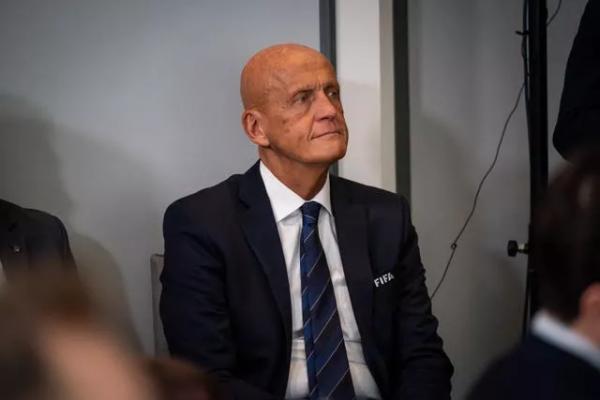
Goalkeepers shown a blue card and sent to the sin bin cannot be directly replaced until their period of temporary dismissal ends, under protocols still to be published by the game’s lawmakers – the PA news agency understands.
Sin bin trial protocols developed by the International Football Association Board (IFAB) make provision for any player on the pitch, including goalkeepers, to be sent to the sin bin for dissent or a tactical foul.
However, they do not extend to substitutes, substituted players or team officials such as a manager or coach.

Protocols designed to improve player behaviour, including sin bins, captain-only zones and cooling-off periods were set to be published on Friday but their publication has now been delayed indefinitely, pending further talks at the IFAB annual general meeting in early March.
However, PA understands goalkeepers are not exempt from temporary dismissals and that no sin-binned player can be substituted until the temporary dismissal period has ended.
That would mean a team whose goalkeeper was sin-binned would need to decide whether to bring on a substitute goalkeeper by taking off an outfield player to cover their absence for 10 minutes, or cope with an outfield player in goal during the period of temporary dismissal.
If they went for the first of those options, they would then need to decide which goalkeeper to take off once the temporary dismissal period had ended and the original goalkeeper re-entered the pitch, assuming they had enough substitutions left.
The delay in publication of the IFAB protocols came after multiple media reports surfaced on Thursday about the introduction of blue cards as part of sin bin trials.
It was reported that a backlash against the idea contributed to the decision to delay, but no formal explanation for the decision to delay has been given by the IFAB.
PA understands the trials were never intended to be introduced into the very top level of professional football during the initial trial phase.
FIFA’s referees’ chief Pierluigi Collina said in November, after approval was given at IFAB’s annual business meeting for trial protocols to be drawn up, that the trials would “very probably” involve professional football.
“The trial was very successful in a grassroots competition. Now we are talking
of a higher level, very probably professional or even high professional football,” the Italian said.
“We need to draft something that works or is worthy for top football.”
At that time, PA understands there were initial expressions of interest in the sin bin trials from a number of Europe’s top leagues.
The Football Association was also understood last week to be considering a trial in the men’s or women’s FA Cup at some stage in the future.
When reports concerning blue cards emerged on Thursday evening, a FIFA statement read: “FIFA wishes to clarify that reports of the so-called ‘blue card’ at elite levels of football are incorrect and premature.
“Any such trials, if implemented, should be limited to testing in a responsible manner at lower levels, a position that FIFA intends to reiterate when this agenda item is discussed at the IFAB AGM on March 2.”
Sourse: breakingnews.ie